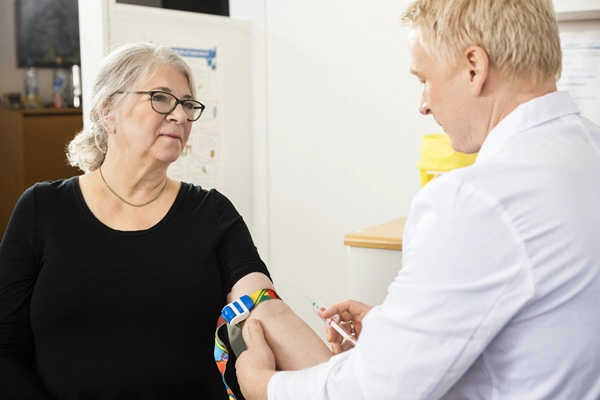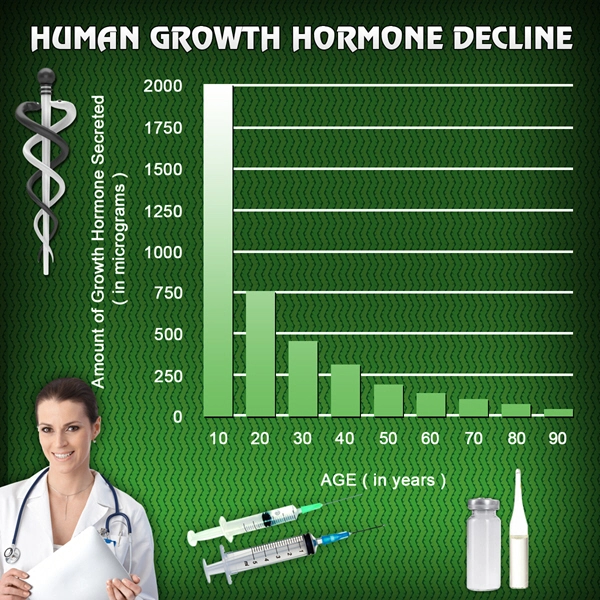Introduction
Parasitic infections pose a significant health challenge globally, with a notable impact on American males, particularly those involved in outdoor activities or traveling to endemic regions. Traditional treatments have limitations, including resistance and side effects. This article delves into the emerging role of peptides as a promising avenue in anti-parasitic therapy, offering new hope for effective management and treatment of these infections.
Understanding Parasitic Infections
Parasitic infections, caused by organisms such as protozoa and helminths, can lead to a range of health issues from mild gastrointestinal disturbances to severe systemic diseases. In the United States, common parasites include Giardia, Cryptosporidium, and various intestinal worms. These infections can be particularly troublesome for American males who engage in activities like hiking, camping, or international travel, increasing their exposure risk.
Limitations of Current Treatments
Current anti-parasitic drugs, while effective to some extent, often face challenges such as drug resistance, toxicity, and limited efficacy against certain parasite stages. For instance, treatments like metronidazole for Giardia may cause side effects like nausea and a metallic taste, deterring patient compliance. Moreover, the emergence of drug-resistant strains necessitates the exploration of alternative therapeutic strategies.
The Rise of Peptides in Therapy
Peptides, short chains of amino acids, have emerged as a versatile class of molecules with potential therapeutic applications. Their specificity, low toxicity, and ability to target multiple stages of parasite life cycles make them an attractive option for anti-parasitic therapy. Recent research has focused on designing peptides that can disrupt the membranes of parasites or inhibit their essential enzymes, offering a dual mechanism of action.
Mechanisms of Peptide Action
Peptides can exert their anti-parasitic effects through various mechanisms. Some peptides target the cell membrane of parasites, leading to lysis and death. For example, the peptide magainin, derived from frog skin, has shown potent activity against protozoa by disrupting their membrane integrity. Other peptides, like those targeting cysteine proteases, can interfere with the parasite's ability to degrade host proteins, essential for their survival and proliferation.
Clinical Applications and Research
Several peptides are currently under investigation for their anti-parasitic properties. In preclinical studies, peptides such as LL-37, a human cathelicidin, have demonstrated efficacy against Leishmania, a parasite causing cutaneous and visceral leishmaniasis. These findings suggest that peptides could be developed into novel therapeutic agents, potentially offering a more targeted and less toxic alternative to current treatments.
Challenges and Future Directions
Despite their promise, the clinical application of peptides in anti-parasitic therapy faces challenges. These include issues related to stability, delivery, and cost. Peptides are often susceptible to degradation by proteases in the body, necessitating the development of delivery systems that can protect them until they reach their target. Additionally, the cost of peptide synthesis and purification can be high, though advancements in biotechnology may help mitigate these expenses.
Conclusion
The role of peptides in anti-parasitic therapy represents a frontier in medical science with significant potential for American males affected by these infections. As research progresses, peptides could offer a new paradigm in the treatment of parasitic diseases, characterized by high efficacy and reduced side effects. Continued investment in peptide research and development is crucial to realizing their full therapeutic potential and improving the health outcomes of those afflicted by parasitic infections.
References
1. Hancock, R. E., & Sahl, H. G. (2006). Antimicrobial and host-defense peptides as new anti-infective therapeutic strategies. Nature Biotechnology, 24(12), 1551-1557.
2. Torrent, M., et al. (2012). Efficacy of antimicrobial peptides against Leishmania parasites. International Journal for Parasitology, 42(10), 885-894.
3. Eckmann, L., et al. (2000). Defensins in innate immunity. Science, 286(5439), 412-415.

- Nicotinamide-N-methyltransferase (NNMT) Versus Its Inhibitor, a new way to promote weight loss? [Last Updated On: January 1st, 2025] [Originally Added On: May 27th, 2021]
- Ipamorelin: A Safe and Effective Alternative to HGH Injections [Last Updated On: November 24th, 2024] [Originally Added On: August 6th, 2021]
- Peptides: Unleashing Potential in Modern Medicine [Last Updated On: March 2nd, 2025] [Originally Added On: March 2nd, 2025]
- Exploring the Role of Peptides in Diabetes Management: Advances and Therapeutic Potential [Last Updated On: March 3rd, 2025] [Originally Added On: March 3rd, 2025]
- Exploring Peptide Therapy in Neurological Disorder Treatment [Last Updated On: March 4th, 2025] [Originally Added On: March 4th, 2025]
- Exploring Peptide-Based Immunotherapy: Advances and Challenges in Cancer Treatment [Last Updated On: March 5th, 2025] [Originally Added On: March 5th, 2025]
- Unlocking the Fountain of Youth: Exploring the Anti-Ageing Potential of Peptides [Last Updated On: March 6th, 2025] [Originally Added On: March 5th, 2025]
- Revolutionizing Men's Health: Peptide Therapeutics in Chronic Disease Management [Last Updated On: March 6th, 2025] [Originally Added On: March 6th, 2025]
- Antimicrobial Peptides: A Promising Solution for Men's Health Against Bacterial Infections [Last Updated On: March 7th, 2025] [Originally Added On: March 7th, 2025]
- Exploring the Frontier: The Evolving Role of Peptides in Allergy Treatment for American Males [Last Updated On: March 7th, 2025] [Originally Added On: March 7th, 2025]
- Peptides in Dermatology: Transforming Men's Skincare for Youthful Skin Health [Last Updated On: March 8th, 2025] [Originally Added On: March 8th, 2025]
- Revolutionizing Male Health: Harnessing Biomimetic Peptides for Regenerative Medicine Advancements [Last Updated On: March 9th, 2025] [Originally Added On: March 9th, 2025]
- Unlocking the Potential of Therapeutic Proteins and Peptides: Advances and Obstacles in Modern Medicine [Last Updated On: March 12th, 2025] [Originally Added On: March 12th, 2025]
- Peptides and Epigenetics: Impact on American Male Health and Disease [Last Updated On: March 13th, 2025] [Originally Added On: March 13th, 2025]
- Peptides Pioneering Personalized Medicine: A New Frontier for American Men [Last Updated On: March 13th, 2025] [Originally Added On: March 13th, 2025]
- Unveiling the Power of Peptides in Wound Healing and Tissue Repair for American Males [Last Updated On: March 15th, 2025] [Originally Added On: March 15th, 2025]
- Peptides and Gene Therapy: Revolutionizing Health for American Males [Last Updated On: March 17th, 2025] [Originally Added On: March 17th, 2025]
- Peptide Vaccines: A Promising Frontier for American Males' Health [Last Updated On: March 18th, 2025] [Originally Added On: March 18th, 2025]
- Peptide Therapies: A Promising Approach to Combat Obesity in American Males [Last Updated On: March 18th, 2025] [Originally Added On: March 18th, 2025]
- Peptides: A New Frontier in Managing Respiratory Health for American Males [Last Updated On: March 19th, 2025] [Originally Added On: March 19th, 2025]
- Peptide-Enhanced Stem Cell Therapies: Revolutionizing Health for American Males [Last Updated On: March 19th, 2025] [Originally Added On: March 19th, 2025]
- Peptides: A Promising Solution for Metabolic Disorders in American Males [Last Updated On: March 19th, 2025] [Originally Added On: March 19th, 2025]
- Peptides in Veterinary Medicine: Enhancing Animal Health and Performance [Last Updated On: March 20th, 2025] [Originally Added On: March 20th, 2025]
- Peptide Therapeutics: Revolutionizing Chronic Disease Management for American Males [Last Updated On: March 20th, 2025] [Originally Added On: March 20th, 2025]
- Peptides: Enhancing Health and Performance in American Males [Last Updated On: March 21st, 2025] [Originally Added On: March 21st, 2025]
- Peptides: Revolutionizing Men's Health in Muscle Growth, Anti-Aging, and More [Last Updated On: March 21st, 2025] [Originally Added On: March 21st, 2025]
- Peptides: A New Frontier in Fighting Infectious Diseases for American Males [Last Updated On: March 21st, 2025] [Originally Added On: March 21st, 2025]
- Peptides: Revolutionizing Diagnostics and Drug Delivery for American Males' Health [Last Updated On: March 22nd, 2025] [Originally Added On: March 22nd, 2025]
- Peptides Revolutionizing Eye Health Treatment for American Males [Last Updated On: March 22nd, 2025] [Originally Added On: March 22nd, 2025]
- Peptide Therapies: A New Frontier for Treating Rheumatic Diseases in American Males [Last Updated On: March 22nd, 2025] [Originally Added On: March 22nd, 2025]
- Peptides: A Promising Solution for Hair Loss in American Males [Last Updated On: March 23rd, 2025] [Originally Added On: March 23rd, 2025]
- Peptides in Endocrinology: Managing Diabetes, Growth Hormone, and Testosterone in American Males [Last Updated On: March 24th, 2025] [Originally Added On: March 24th, 2025]
- Bioactive Peptides: Enhancing Men's Health from Muscle to Cancer Prevention [Last Updated On: March 24th, 2025] [Originally Added On: March 24th, 2025]
- Peptides and Male Fertility: Exploring Therapeutic Potential and Future Directions [Last Updated On: March 24th, 2025] [Originally Added On: March 24th, 2025]
- Peptides' Role in Enhancing Liver Health for American Males: A Scientific Overview [Last Updated On: March 24th, 2025] [Originally Added On: March 24th, 2025]
- Peptide-Based HIV Vaccines: Progress and Promise for American Males [Last Updated On: March 24th, 2025] [Originally Added On: March 24th, 2025]
- Peptides: A New Frontier in Mental Health for American Males [Last Updated On: March 25th, 2025] [Originally Added On: March 25th, 2025]
- Peptide Therapies Revolutionizing Transplant Medicine for American Males [Last Updated On: March 25th, 2025] [Originally Added On: March 25th, 2025]
- Peptides Revolutionize Toxicology: Diagnostics, Therapeutics, and Vaccines for American Males [Last Updated On: March 25th, 2025] [Originally Added On: March 25th, 2025]
- Peptide Radiopharmaceuticals: Advancing Men's Health in Cancer and Cardiovascular Care [Last Updated On: March 25th, 2025] [Originally Added On: March 25th, 2025]
- Peptides: A Revolutionary Approach to Cardiovascular Health for American Men [Last Updated On: March 25th, 2025] [Originally Added On: March 25th, 2025]
- Peptides: Enhancing Gut Health and Well-being in American Males [Last Updated On: March 25th, 2025] [Originally Added On: March 25th, 2025]
- Peptide-Based Biomarkers: Revolutionizing Disease Detection in American Males [Last Updated On: March 25th, 2025] [Originally Added On: March 25th, 2025]
- Peptides Revolutionizing Dentistry: Benefits for American Men's Oral Health [Last Updated On: March 25th, 2025] [Originally Added On: March 25th, 2025]
- Peptides Offer Hope for American Males with Neuropathic Pain: Recent Research Insights [Last Updated On: March 25th, 2025] [Originally Added On: March 25th, 2025]
- Peptides Revolutionizing Sports Medicine: Enhancing Performance and Recovery in Athletes [Last Updated On: March 25th, 2025] [Originally Added On: March 25th, 2025]
- Peptide-Enriched Skincare: Benefits and Advances for American Males [Last Updated On: March 25th, 2025] [Originally Added On: March 25th, 2025]
- Peptide Therapeutics: Targeted Hope for American Males with Rare Diseases [Last Updated On: March 26th, 2025] [Originally Added On: March 26th, 2025]
- Peptide Drugs in Pediatrics: Targeted Treatments for American Males' Children [Last Updated On: March 26th, 2025] [Originally Added On: March 26th, 2025]
- Stem Cells and Peptides: Revolutionizing Regenerative Medicine for American Males [Last Updated On: March 26th, 2025] [Originally Added On: March 26th, 2025]
- Peptides Revolutionizing Trauma Care: From Hemostasis to Neuroprotection [Last Updated On: March 26th, 2025] [Originally Added On: March 26th, 2025]
- Peptide Nanotechnology: Revolutionizing Cancer, Heart Disease, and Diabetes Treatment for American Males [Last Updated On: March 26th, 2025] [Originally Added On: March 26th, 2025]
- Peptides Enhance Photodynamic Therapy: A Promising Treatment for American Men's Health [Last Updated On: March 26th, 2025] [Originally Added On: March 26th, 2025]
- Peptide Vaccines: Revolutionizing Disease Prevention in Veterinary Medicine [Last Updated On: March 26th, 2025] [Originally Added On: March 26th, 2025]
- Peptides in Stroke Recovery: Potential and Challenges for American Males [Last Updated On: March 27th, 2025] [Originally Added On: March 27th, 2025]
- Peptide Bioinformatics: Revolutionizing Precision Medicine for American Males [Last Updated On: March 27th, 2025] [Originally Added On: March 27th, 2025]
- Peptide Therapies: Revolutionizing Gastrointestinal Health for American Males [Last Updated On: March 27th, 2025] [Originally Added On: March 27th, 2025]
- Peptides in Epilepsy: New Hope for American Males' Treatment and Management [Last Updated On: March 28th, 2025] [Originally Added On: March 28th, 2025]
- Peptide-Based Biosensors: Revolutionizing Early Disease Detection in American Males [Last Updated On: March 28th, 2025] [Originally Added On: March 28th, 2025]
- Peptides: A Promising Solution to Antibiotic Resistance in American Males [Last Updated On: March 28th, 2025] [Originally Added On: March 28th, 2025]
- Peptide Therapy: A New Hope for American Men with Neurodegenerative Diseases [Last Updated On: March 28th, 2025] [Originally Added On: March 28th, 2025]
- Peptide Therapies: Enhancing Bone Health in American Males [Last Updated On: March 28th, 2025] [Originally Added On: March 28th, 2025]
- Peptides: A Targeted Approach to Managing Inflammation in American Males [Last Updated On: March 28th, 2025] [Originally Added On: March 28th, 2025]
- Peptide Therapy: A New Hope for American Males with Hematological Disorders [Last Updated On: March 29th, 2025] [Originally Added On: March 29th, 2025]
- Peptide-Based Anti-venoms: Revolutionizing Snakebite Treatment for American Males [Last Updated On: March 29th, 2025] [Originally Added On: March 29th, 2025]
- Peptide-Polymer Composites: Revolutionizing Targeted Therapy for American Males [Last Updated On: March 29th, 2025] [Originally Added On: March 29th, 2025]
- Peptides as Cell-Penetrating Agents: Revolutionizing Men's Health Treatments [Last Updated On: March 30th, 2025] [Originally Added On: March 30th, 2025]
- Peptides in Burn Wound Management: Healing and Scar Reduction for American Males [Last Updated On: April 1st, 2025] [Originally Added On: April 1st, 2025]
- Peptide Drug Conjugates: Revolutionizing Targeted Therapy for American Men's Health [Last Updated On: April 1st, 2025] [Originally Added On: April 1st, 2025]
- Peptides in Managing Acute Kidney Injury: Benefits and Challenges for American Males [Last Updated On: April 2nd, 2025] [Originally Added On: April 2nd, 2025]
- Peptides in Substance Abuse Treatment: Mechanisms, Applications, and Future Prospects [Last Updated On: April 2nd, 2025] [Originally Added On: April 2nd, 2025]
- Peptides: A Promising Treatment for Ocular Infections in American Males [Last Updated On: April 5th, 2025] [Originally Added On: April 5th, 2025]
- Peptide Therapies: A New Frontier in Treating Osteoporosis in American Males [Last Updated On: April 6th, 2025] [Originally Added On: April 6th, 2025]
- Peptide Therapies: A New Frontier in Prostate Cancer Treatment [Last Updated On: April 8th, 2025] [Originally Added On: April 8th, 2025]
- Peptide Therapy: A New Hope for Autoimmune Diseases in American Males [Last Updated On: April 8th, 2025] [Originally Added On: April 8th, 2025]
- Peptides in Geriatric Medicine: Enhancing Muscle, Cognitive, and Metabolic Health in Aging Males [Last Updated On: April 8th, 2025] [Originally Added On: April 8th, 2025]
- Peptide Therapy: Enhancing Post-Operative Recovery for American Males [Last Updated On: April 9th, 2025] [Originally Added On: April 9th, 2025]
- Peptide Therapy: A Promising New Approach to Treating Depression in American Men [Last Updated On: April 9th, 2025] [Originally Added On: April 9th, 2025]
- Peptide Therapies: Revolutionizing Genetic Disorder Treatment for American Males [Last Updated On: April 11th, 2025] [Originally Added On: April 11th, 2025]
- Peptides in Veterinary Dermatology: Promises, Challenges, and the American Male Perspective [Last Updated On: April 11th, 2025] [Originally Added On: April 11th, 2025]



List of USA state clinics - click a flag below for blood testing clinics.
Word Count: 578



















































